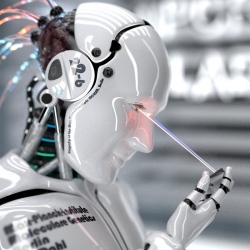
Vicarious FPC Inc, an artificial intelligence company that uses the computational principles of the brain to build software that can think and learn like a human, has announced a $15M Series A round of financing for development of machine learning software based on the computational principles of the human brain.
The research at Vicarious is expected to have broad implications for robotics, medical image analysis, image and video search, and many other fields.
“Building machine intelligence is one of the most important and challenging problems humanity has ever faced. Advancements in neuroscience, probabilistic models, and computing power are enabling new strategies for AI research,” said Vicarious co-founder Dr. Dileep George.
A new computational paradigm: the Recursive Cortical Network
Since its launch in February 2011, the company has developed a visual perception system that interprets the contents of photographs and videos in a manner similar to humans. Powering this technology is Vicarious’ key innovation: a new computational paradigm called the Recursive Cortical Network (RCN).
RCN is an extension of hierarchical temporal memory (HTM), a machine learning model developed by Jeff Hawkins and Dileep George of Numenta, Inc. that models some of the structural and algorithmic properties of the neocortex.
“HTM was an important effort,” George told KurzweilAI. in an email interview. ”Much like Poggio’s foundational HMAX model, HTM had the right high level goals. But, when you dig into the algorithm level, you’ll see that HTM implementations hadn’t solved the problems of information representation in the hierarchy.
“This led to inefficient learning and scaling issues. The mathematical formulation of HTMs were made up of these “blocky” nodes with boundaries that restricted information transfer between adjacent nodes, which is not very effective in dealing with domains like vision and sound.
“After I started Vicarious, I had the freedom of a clean slate and could look at the problem with fresh eyes. My goals have always been to embody the computational principles of the brain in a mathematical model, but RCN is a ground-up rethinking of what kind of algorithmic approach is necessary to solve the problem.”
